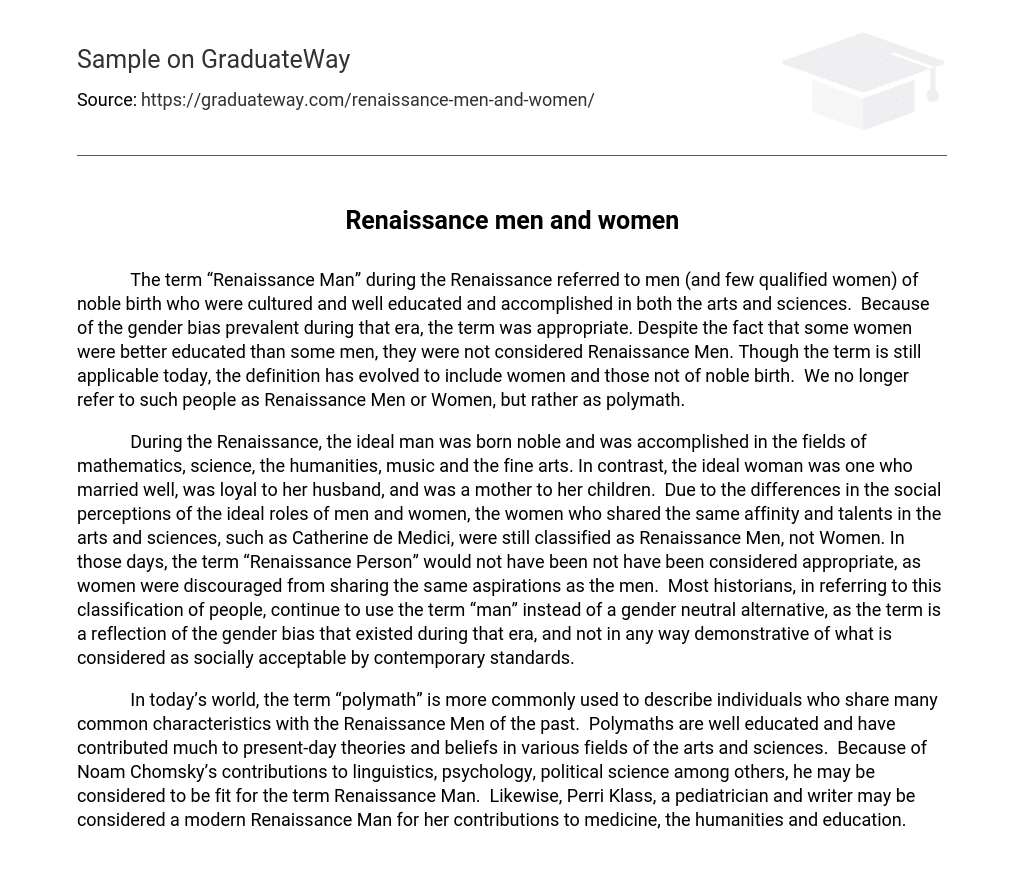The term “Renaissance Man” during the Renaissance referred to men (and few qualified women) of noble birth who were cultured and well educated and accomplished in both the arts and sciences. Because of the gender bias prevalent during that era, the term was appropriate. Despite the fact that some women were better educated than some men, they were not considered Renaissance Men. Though the term is still applicable today, the definition has evolved to include women and those not of noble birth. We no longer refer to such people as Renaissance Men or Women, but rather as polymath.
During the Renaissance, the ideal man was born noble and was accomplished in the fields of mathematics, science, the humanities, music and the fine arts. In contrast, the ideal woman was one who married well, was loyal to her husband, and was a mother to her children. Due to the differences in the social perceptions of the ideal roles of men and women, the women who shared the same affinity and talents in the arts and sciences, such as Catherine de Medici, were still classified as Renaissance Men, not Women. In those days, the term “Renaissance Person” would not have been not have been considered appropriate, as women were discouraged from sharing the same aspirations as the men. Most historians, in referring to this classification of people, continue to use the term “man” instead of a gender neutral alternative, as the term is a reflection of the gender bias that existed during that era, and not in any way demonstrative of what is considered as socially acceptable by contemporary standards.
In today’s world, the term “polymath” is more commonly used to describe individuals who share many common characteristics with the Renaissance Men of the past. Polymaths are well educated and have contributed much to present-day theories and beliefs in various fields of the arts and sciences. Because of Noam Chomsky’s contributions to linguistics, psychology, political science among others, he may be considered to be fit for the term Renaissance Man. Likewise, Perri Klass, a pediatrician and writer may be considered a modern Renaissance Man for her contributions to medicine, the humanities and education.





